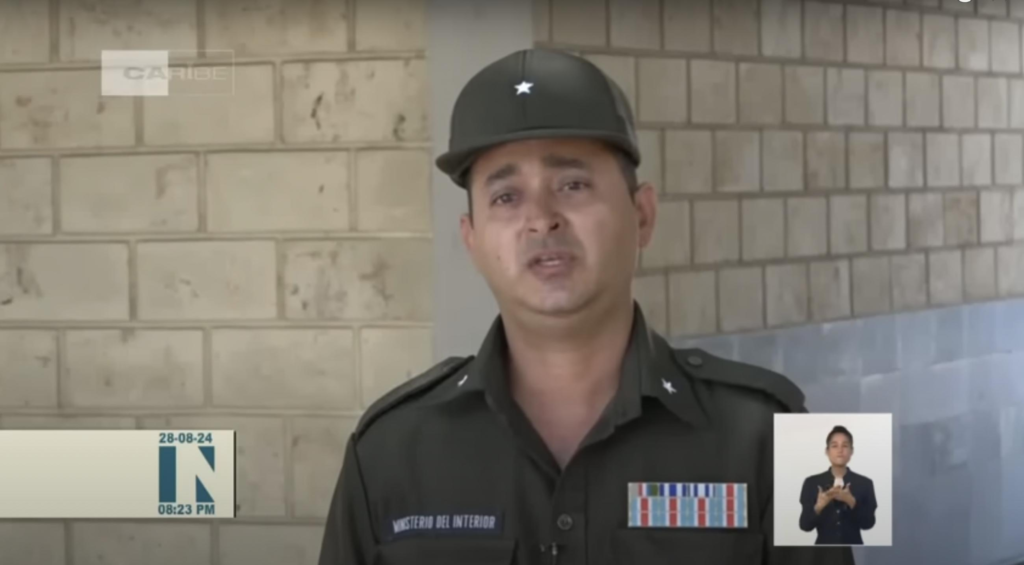Exemplary trials have become a new tool of repression

14ymedio, Havana, August 31, 2024 — With a soundtrack worthy of police cinema, Cuban Television presented this week the results of an investigation that led to the arrest of 10 members of a “crime chain” in Matanzas. Aimed at warning the population and using all kinds of narrative resources, the report revolves around a kind of hero of the Ministry of the Interior: Major Yudiel Tomé, criminal investigator of the case.
In the first images, Tomé appears on his desk examining the evidence of the case: photos of several paddocks located in Colón, Los Arabos and Calimete, where the Police have already found several clues: a machete, a rope, a farmer’s boot footprint. “Those involved used weapons and exercised violence on the victims, and also slaughtered animals,” the investigator summarizes.
An officer of the Ministry takes note of what Tomé comes up with, after reviewing the files of the detainees. “But the investigation continues,” he warns. Tomé is not a great speaker and explains the case in front of the cameras with great difficulty. He warned that with the clues uncovered on the ground, the Prosecutor’s Office was asked to issue an arrest warrant against a dozen people involved. They are already in “provisional prison,” the policeman said, “according to their aggressiveness and the seriousness of the facts.”
Yulelkis Hernández, provincial prosecutor, was much more eloquent about the case and fulfilled one of the functions of these reports: their exemplary character. Hernández said that pre-trial detention was an extraordinary measure, but that the authorities had all the power in the world to apply it, especially if it was requested by the police. The key words, frequent in the official press, is “maximum severity.”
Without explaining the reasons, halfway through the rep


